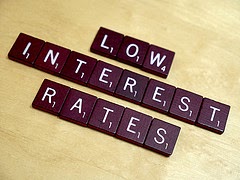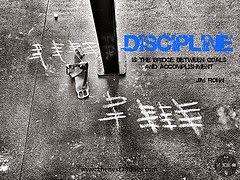 In the past, when people wanted to save money, they put their cash in a savings account at a bank. I remember when I was growing up in the 1970s and 1980s, I had a passbook savings account at a local savings and loan that paid 5.25% interest. Today, however, the Federal Reserve has been keeping interest rates incredibly low in order to stimulate the economy. A consequence of that policy is that the interest rates banks pay on savings accounts have plummeted to almost zero.
In the past, when people wanted to save money, they put their cash in a savings account at a bank. I remember when I was growing up in the 1970s and 1980s, I had a passbook savings account at a local savings and loan that paid 5.25% interest. Today, however, the Federal Reserve has been keeping interest rates incredibly low in order to stimulate the economy. A consequence of that policy is that the interest rates banks pay on savings accounts have plummeted to almost zero.
I bank at a credit union, which typically pays higher interest rates to its customers than a bank does. A savings account at my credit union currently pays 0.05% interest. The highest rate they offer is 0.2% and to get that, you need to open a money market account and have $250,000 in it. Yes, in order to earn a measly little two-tenths of a percent, you need to have one quarter of a million dollars on deposit. Think about that for a minute. That works out to just $500 per year in interest. On a quarter of a million dollars. That sucks!
Online banks are slightly better. I have a savings account at Capital One 360, formerly ING Direct, that pays 0.75% interest. That's significantly better than my credit union, but still somewhat sucky in general.
But Savings Accounts Are Safe!
Yes, savings accounts are insured by the government and are one of the safest places to park your cash. That safety comes with a steep price, however.
According to the latest available figures at the time I am writing this, inflation is at 1.7%. (Inflation measures the rise in the cost of goods and services over time.) If inflation is at 1.7% and your savings account is paying you 0.2%, you are actually losing money at the rate of 1.5% per year. That $100 you have in your savings account today will only buy $98.50 worth of stuff next year.
So What Can You Do?
There are a couple of alternatives you can look at and which one is right for you depends on what the money in your savings account is for. Or to put it another way, what you do with that money depends on how soon you need it. To put it a third way, it depends on your time horizon.
If you absolutely must have the safety that a savings account offers or you will be needing your money in the short term (0 - 9 months), a traditional savings account is probably the best bet for you, but at the very least get one at an on-line bank, such as
Capital One 360. Not only will you get a higher interest rate, but you will likely also have lower, if no, fees. You lose the ability to go into a local branch office and withdraw money, but who does that anymore? With ATMs and internet transfers, there is really very little need to visit a physical branch. You still will lose out to inflation in the long run, but at least that loss will be less than it will at a traditional bank.
If your savings account is more for a long term goal or an emergency fund, invest in the stock market. If you won't need your money for over a year or you plan not to touch it unless an emergency happens - such as a job loss or a major appliance or car breakdown, then I suggest opening a brokerage account and investing that money in a very low cost index fund. I like Vanguard's
Total Market Index Fund or
Dividend Appreciation Index Fund. These mutual funds have an expense ratio of 0.2% or less and their five year returns are 14% or higher. (See
this series of posts on why expense ratios are important factors to consider when choosing a mutual fund.) You can purchase shares of these funds through a brokerage, which will probably charge you a commission (although some brokerages do not), or you can buy them directly from Vanguard. Buying directly from Vanguard however, will require a minimum purchase of $3,000.
Going this route does mean your money is less liquid. Still, if an emergency came up and you needed access to that cash quickly, you could sell your shares and get the cash within a week. If you need it sooner, an option would be to put your expenses on a credit card until your funds become available (and then pay the card off, so you won't get hit with interest charges).
Another option is to open an account with
Betterment. When you open an account with them, you can specify the purpose for your account - such as an emergency fund, retirement, etc., give them your age and income and they will recommend an investment strategy for you. They will diversify your investments for you, but you can always adjust the risk level and investments yourself if you want to have more control. You can set up automatic deposits and purchases and put your savings on autopilot. Fees range from 0.35% to 0.15%, based on how you much have in your account. There is no minimum balance required to open an account and you can transfer funds electronically to and from your checking account.
A fourth option is to invest in individual stocks that pay dividends. This is riskier than any of the other options and is not for everyone. The lack of diversification means you are exposed to the risks of the price volatility of one or two stocks. However, if you have been following a company for years and have a good understanding of the business and they have a strong history of increasing dividends, this might be the way to go. Personally, my Tesla funds are invested in
Realty Income until I accumulate enough to lend out as a hard money loan.
You'll notice I'm recommending investing in funds and stocks that pay dividends.Why not just funds or stocks in general? If you buy a stock that does not pay a dividend, you are at the mercy of the market when it comes to your return. The stock price will fluctuate outside of your control. But if you have a stock that pays dividends, you will get a fixed amount of money each quarter or each month for every share of stock you own. That's income you get regardless of whatever the market decides the stock is worth on any particular day. The dividend will help protect you from price fluctuations. Let's look at an example.
Say you bought 100 shares of XYZ company at $100 per share. They pay $5 per share per year in dividends, paid monthly. That works out to $0.41667 cents per share per month. Suppose, after 15 months, the stock price has dropped down to 95 dollars per share. Your hundred shares that you paid $10,000 for is now worth only $9,500. But in those 15 months, you have been paid $625.00 in dividends, so your investment, including the dividends you got paid, is really worth $10,125. Even though the price per share has dropped since you purchased the stock, you have still made money. This is what I mean when I say dividends can help protect you from price fluctuations.
In Summary
In the current low interest rate environment, keeping your money in a savings account is a losing proposition. Your earnings in a savings account will not keep up with the pace of inflation and the actual buying power of your money will decrease over time. Any of the four options I've listed will give you a greater return on your money than you'd get parking it in a savings account at a bank or credit union. In the current environment, the only way to beat inflation is to invest in the stock market and the safest way to do that is to invest in a diversified portfolio, either through a service like Betterment or a low cost mutual fund.
Note: The links to Capital One 360 are referral links and I will receive some money if you use them and open an account. You will also get free money for doing so - $25 to $50, depending on the type of account you open. Other than that, I receive no payment from Capital One 360 and they played no part in the creation of this post.
 Discipline is what enables you to achieve long term goals. When your time horizon is so far out, it's discipline
Discipline is what enables you to achieve long term goals. When your time horizon is so far out, it's discipline 


